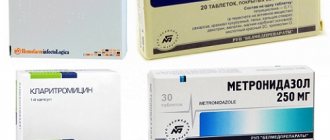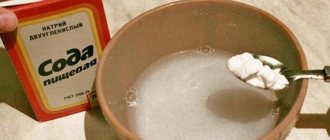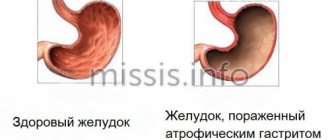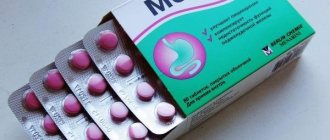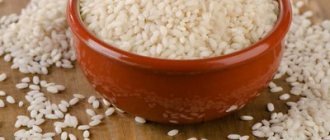More information about the drug
The drug is included in a complex treatment regimen with the aim of restoring normal excretion of feces from the intestines, eliminating flatulence and associated intestinal colic, belching, a feeling of heaviness and bloating in the abdomen. Its effectiveness has been proven by the results of a number of randomized studies.
They differ in appearance and some composition of excipients: in the Russian version, povidone is additionally present. This component accelerates the dissolution of the drug and increases its bioavailability.
Trimedat is available only in tablet form in three doses: 100, 200 and 300 mg. Trimedat Forte, which has a high dose of the active substance (300 mg), is intended for a single dose during the day, in severe cases it is prescribed twice a day.
The main active component of Trimedat, trimebutine maleate, has an affinity for the chemical structure of intestinal receptors, which are involved in the stimulation and relaxation of its smooth muscle cells. Affects the humoral regulation of the digestive organs:
- increases the level of motilin, a hormone that regulates gastrointestinal motility;
- reduces the synthesis of other hormones produced in the pancreas that are involved in digestive processes - glucagon, gastrin, VKP (vasoactive intestinal peptide), pancreatic polypeptide.
Therefore, the drug has a stimulating effect on the muscles of the digestive tract in case of their hypotonicity and acts as an antispasmodic in their hyperkinetic state.
This achieves relaxation of the sphincter and stimulation of peristalsis of the large intestine, which facilitates daily bowel movements. The drug, according to the official instructions, regulates the motility of the entire digestive tract, but mostly the intestines. The intensity of peristalsis in all its parts is leveled out and becomes uniform. As a result, the passage of the food bolus improves and its progress accelerates: it moves evenly along the digestive tube, without stopping or quickly skipping any parts of the intestine. In this regard, many symptoms associated with impaired peristalsis are relieved:
- nausea, accompanied in many cases by vomiting;
- diarrhea or constipation;
- flatulence;
- pain in the epigastrium and along the intestinal segments.
Composition and release form
The action of Trimedat is due to the presence of trimebutine in the composition. The remaining substances are auxiliary and do not have a pharmacological effect:
- talc;
- magnesium stearate;
- colloidal silicon dioxide;
- corn starch.
The dosage of the main active ingredient per 1 tablet is 100 mg or 200 mg.
In pharmacies the drug can be found under two names: Trimedat and Trimedat Valenta. These medicines do not differ in the components they contain. The difference lies in the country of origin:
- Trimedat Valenta - produced in Russia;
- Trimedat - manufactured in the Republic of Korea.
Release form
Trimedat is available in tablets of 100 and 200 milligrams.
100-milligram tablets have a flat-cylindrical shape with characteristic, cross-shaped, intersecting indentations (they are convenient for breaking the tablet into four parts, which may be necessary if the patient is prescribed a lower dose of medication) on one side and the letters T and M (Trimedat) and six triangles ( three on top and bottom) on the other.
The 200-milligram tablets come in a slightly different form. They are round, biconvex, with two drop-shaped indentations on one side and an approximate line dividing each tablet into two equal parts on the other.
Both forms of the drug are sold in blisters, each of which contains ten tablets hermetically sealed. Blisters are packaged in cardboard boxes, 1, 2 or 3 in each. Thanks to this, you can purchase exactly as much of the drug as prescribed, and at the end of the course of treatment you do not have to worry about what to do with almost the entire package.
Indications for use
The doctor makes an appointment and directs the correct treatment. Symptoms susceptible to the effects of the drug may occur in the following cases:
- various ailments in the stomach and intestines with unexpressed symptoms;
- absence of a surgically removed gallbladder;
- deviations in the functions of the gallbladder (stones in the canals and organ, variations in the volume of bile secreted when the ducts narrow/expand);
- stomach/intestinal ulcers;
- therapy after surgery (against the background of constipation, intestinal obstruction);
- colitis, gastritis;
- diarrhea, constipation that do not have an infectious component;
- preparation for endoscopic and x-ray examinations;
- severe food poisoning, painful cramps;
- flatulence, bloating, when the pain is localized in the upper abdomen;
- dyspepsia, including in children, in which pain, vomiting, nausea, intestinal colic, constipation, rumbling in the abdomen, and diarrhea are observed;
- severe irritability, intestinal spasms;
- uncomfortable heaviness in the stomach, especially when eating fatty, spicy foods with spicy spices;
- gastroesophageal reflux disease, etc.
pharmachologic effect
The drug begins to act on the gastrointestinal tract 1.5 hours after taking the tablet (duration of action - 5 hours). It is believed that for an effective systemic effect on the entire digestive system, it should be taken three times during the day. After administration, trimebutine begins to normalize the contractility of the stomach muscles, affecting the layers of the epithelium.
The speed at which food bolus leaves the stomach is optimized. The pressure of the esophageal sphincter on the stomach is normalized, which prevents the backflow (reflux) of food and acid into the esophagus, leading to vomiting, heartburn, and nausea. This ensures relief of stomach pain.
Trimebutine restores and stabilizes the lost physiological activity of the intestinal muscles (peristalsis), which is often the cause of ailments of the digestive system. "Trimedat" evens out and coordinates the intensity of muscle contractions and movements of all parts of the long intestine. Food begins to move through it at a speed optimal for the body.
As a result, daily bowel movements are carried out more naturally and easily, and the response of the colon to food irritants is optimized. The biological availability of the active substance does not exceed 6%. It accumulates and decomposes in the liver, and is excreted in the urine (about 70% in the first day).
Trimedat belongs to the category of antispasmodic drugs. It has a gentle effect on the intestinal contraction system. The drug is quite safe for the body, so it can be taken for a long time. Trimebutin has the properties of a targeted effect on the smooth muscles of internal organs. Thanks to this, it has the following effect:
- stimulates muscle contraction in hypokinetic disorders;
- relieves spasms in hyperkinetic manifestations of diseases, for example, pancreatitis;
- eliminates colic and bloating;
- restores intestinal motility and eliminates constipation; restores normal functioning of the sphincter of Oddi;
- improves the flow of bile and digestive enzymes;
- promotes the manifestation of the correct intestinal response to undigested food;
- promotes the timely movement of food from the stomach to the intestines.
Thanks to Trimedat, it is possible to normalize the digestive process and restore the correct chain of reactions of the gastrointestinal tract to incoming food. Unpleasant sensations, heaviness in the stomach, cramps are eliminated. In case of problems with the gallbladder and pancreas, it is possible to restore the full flow of digestive juices and enzymes into the gastrointestinal tract. When taking the drug, it has a special effect on the intestines, as it is possible to normalize its motility. Thanks to the targeted effect of the active substance, problems of both directions are eliminated: both hyperkinetic and hypokinetic.
Application and dosage
The dosage of the drug is prescribed by the doctor.
The drug "Trimedat" is prescribed to adults and children. The dosage should correspond to the age category of the patient. The following dosages have been established:
- people aged 12 years and older - one tablet containing 100 (200) mg of trimebutine (depending on the condition) three times a day;
- children from 5 to 12 years old - 50 mg (1/2 tablet of the minimum dosage) three times a day;
- for children from 3 to 5 years old - 25 mg (1/4 tablet of the minimum dosage) in three doses during the day.
The duration of the course is set depending on the patient’s condition and the characteristics of the disease (the standard dosage may be reduced).
How is gastroduodenitis treated with tablets?
Gastroduodenitis is similar in its course to gastritis. Therefore, a correct diagnosis is important. Inflammation spreads to the stomach and duodenum.
A little about the signs and causes of the disease
Main symptoms and their signs:
- Abdominal pain can occur regardless of food intake. Patients feel bloating in the stomach and abdomen.
- Nausea due to acute inflammation.
- Vomiting without relief.
- Belching after eating.
- Lack of appetite during exacerbations.
- Flatulence.
Why does the disease occur? The causes may be stress, poor diet, infections, and the bacterium Helicobacter pylori.
The body must produce a certain amount of gastric juice. It does not affect the mucous membrane. But when some side factors arise, the mucous membrane cannot resist the acid and becomes inflamed.
Its absorption function is impaired. The first signs of the disease appear.
Drug treatment
The gastroenterologist determines the form of the patient’s disease, associated pathologies and prescribes medications. Depending on the severity, it can be outpatient or inpatient. In acute cases, bed rest is required.
To eliminate corticovisceral disorders, adaptogens and sedatives are used.
To normalize the acid balance in the stomach, stimulants are prescribed.
Most often, doctors prescribe drugs such as De-Nol, Omez, Creon, Nolpaza, Trimedat, Omeprazole, as well as antibiotics.
Medicines are prescribed depending on the patient’s condition and medical history. They can be divided into groups:
- Antacids.
- H2 – histamine blockers.
- Proton pump inhibitors.
- Cytoprotectors.
- Prokinetics.
- Anti-Helicobacter therapy.
Antacids are taken for high acidity. They relieve pain and fight heartburn. For example, Almagel, Maalox, Simethicone. These medications are taken for two weeks during the acute period.
Histamine blockers are used for superficial gastroduodenitis. It is usually associated with increased stomach acid. For this form of the disease, Ranitidine and Famotidine are prescribed. Children over 12 years old – Famotidine 20 mg twice a day. Ranitidine - 300 mg per dose twice.
Treatment of gastroduodenitis with tablets takes a long time. You cannot suddenly stop taking medications. The dose should be reduced gradually.
For high acidity, drugs from different groups are used. Creon and Nolpaza help relieve pain at the initial stage of the disease. Prescribe diet, antibiotics and vitamins.
Patients are prescribed histamine blockers - Omez, Omeprazole. They reduce acid secretion. Nolpaza blocks the synthesis of hydrochloric acid.
For erosive gastroduodenitis, the combination drug Sucralfate is used. After taking it, a film is formed on the diseased gastric mucosa, which protects the organ from acidic contents. Duration of exposure – 6 hours.
Cytoprotectors suppress the vital activity of the bacterium Helicobacter pylori: De-Nol, colloidal bismuth, Venter and others. Their admission is carried out in courses.
If gastroduodenitis is accompanied by reflux (reflux of contents) from the stomach and duodenum, spasms, and motility disorders, then other drugs are used.
Metoclopramide (Cerucal) helps digest food faster. Dose 0.1 mg – per kg of weight. Domperidone (Motilium) helps treat reflux. It is available in the form of tablets or suspensions. Used in an amount of 0.25 mg per kg of body weight three to four times a day.
Gastroduodenitis is a chronic disease, complete cure is impossible. A more vivid clinical picture is observed in patients with Helicobacter. Antibacterial drugs are used.
Treatment regimen:
- De-Nol in a dose from 120 to 240 mg is taken 3 times a day, Furazolidone in an amount from 0.05 to 0.1 g is taken 4 times a day, Amoxicillin in a dose from 250 to 500 mg - 2 times.
- De-nol and Furazolidone in the same dose are taken 4 times a day, Clarithromycin or Erythromycin in a dose of 250 mg - 2 times.
- De-Nol in a dose of 120 to 240 mg is taken 3 times a day, Metronidazole from 250 to 500 mg - 2 times a day, Amoxicillin in an amount from 250 to 500 mg - 2 times.
Infrequently, acute gastroduodenitis caused by salmonella, shigella, staphylococcus, and E. coli occurs.
In addition to bacteria, protozoan microorganisms lead to the development of inflammation of the duodenal mucosa. These can be Giardia, parasites (roundworms, cat fluke, dwarf tapeworm, etc.).
In such cases, antibiotics are used. Many of them negatively affect the human body. For example, Tetracycline should not be taken during pregnancy; Metronidazole is contraindicated in cases of damage to the central nervous system or liver failure. If you have an infectious disease, you cannot be treated with Amoxicillin.
Source: https://gastritlechim.ru/bolezni-zheludka/gastroduodenit/kak-provoditsya-lechenie-gastroduodenita-tabletkami.html
How to use for gastritis
This remedy can be taken both in the acute stage and during remission of diseases such as gastritis with low acidity, duodenitis. Do not use during an exacerbation of the ulcer. The effect of the drug for gastritis can be noticed after 1-2 weeks, so prescribing Trimedat in short courses is simply pointless. It is recommended to take tablets at a dosage of 100 mg for 60-90 days. It is also important to take breaks between courses of taking the medication - at least 3 months.
| Indications | Dosage, frequency of use | Course duration |
| The period of exacerbation in irritable bowel syndrome. | 200 mg 3 times a day | 30-45 days |
| To prevent exacerbation of urticaria. | 100 mg 3 times a day | 21 day |
| Symptomatic treatment of functional disorders | 100 mg 3 times a day | 3-7 days |
| Before the start of endoscopic examination | 100 mg 1-2 times immediately before the start of the procedure | The night before the procedure, as well as in the morning (if necessary) |
Treatment strategy for gastritis with Trimedat
Depending on the course of the disease, the doctor selects the most effective drugs for the patient. These may be drugs that affect the motility of the gastrointestinal tract, contain pancreatic enzymes, bifidobacteria, etc.
If a woman requires treatment for gastritis while breastfeeding, then prescribing Trimedat is not advisable. But if necessary and the expected effect of treatment is high for a woman, it can be prescribed, taking into account the fact that during therapy and for another two days after it, breastfeeding will not be carried out.
As a means of improving intestinal motility, Trimedat is one of the most effective means. Treatment of gastritis with Trimedat depends on the patient’s health condition and can last up to several months.
Use during pregnancy and breastfeeding
During the first trimester of embryo development, when all systems and organs are formed, the drug is not used, since there is no information about its effect on this process, and the organisms of the mother and fetus are combined. Subsequent use is possible, but not advisable, although the dosage regimen and dosage are standard (as prescribed by a doctor). The increased sensitivity of a woman’s body during this period can cause allergies, skin itching and redness, although this may not have manifested itself earlier (before pregnancy).
For mothers feeding their newborns with breast milk, the medicine is prescribed in emergency cases, when the risk of exposure to the baby is less than the possible benefit from taking it by the mother. During this period, the baby is weaned and transferred to a different diet. There are no reliable official data on the safety of using the product during this period.
Help with poisoning
For poisoning not associated with infection, Trimedat is used to eliminate nausea, discomfort or pain in the stomach and intestines, to normalize loose stools if the pathological process involves the small or large intestine. The medicine must be started at the first signs of poisoning in order to prevent serious consequences associated with diarrhea or stomach disorders. Trimedat prevents dehydration, eliminates nausea and cramping pain, cleanses the intestinal walls of toxins, and helps interrupt intoxication. If the drug is taken in a timely manner, the signs of poisoning disappear within one day. The dosage regimen is standard: for adults - take 200 mg × 3 times a day until symptoms disappear. To prevent recurrent disorders, it is recommended to continue this therapy for another 10 days.
"Trimedat" for children
The drug is not prescribed to children under 3 years of age. For older children, it is indicated in the appropriate age dosage (regardless of the type and severity of the illness) for dyspeptic symptoms (heartburn, diarrhea, constipation, abdominal pain and bloating, heaviness in the stomach). They can appear after overeating, introducing new foods, carbonated liquids into the diet, acclimatization, or excess nervous and physical activity. The course of taking the medication (usually one to three days) is stopped when the symptoms of indigestion disappear.
Longer courses of medication use (from 30 to 60 days) are prescribed when the following are diagnosed:
- pancreatitis;
- gastroduodenitis;
- gastritis;
- gastroesophageal reflux disease, etc.
An age-specific tablet dose can be turned into powder and mixed with water (juice) and given to a small child to drink. For children, the drug is prescribed only by a doctor.
Help Trimedat for GERD
Trimedat is the most prescribed drug for GERD by gastroenterologists (according to Ipsos Comcon Prindex, April 2021). One of the effects of Trimedat on the gastrointestinal tract is the optimization of the lower esophageal sphincter, as well as the rate of gastric emptying. This prevents the occurrence of reflux - the reflux of acidic contents from the stomach into the lower third of the esophagus. Thus, the drug prevents the development of gastroesophageal reflux with the further formation of erosive or ulcerative esophagitis and its symptoms: nausea, vomiting, belching, heartburn, pain.
Normally, the food bolus enters the stomach, after which the esophageal sphincter closes tightly. If there is normal tone of the circular muscles of the lower third of the esophagus, reflux is unacceptable.
With chalazia cardia, which is caused by a gaping of the esophageal-gastric junction due to weakness of the sphincter muscles, particles of acidic food masses are thrown or flowed from the stomach in the opposite direction - into the esophagus. This occurs immediately after eating if the patient lies down or bends the torso forward. In such cases, therapy with Trimedat is effective. If chalazia has not reached a significant extent, the drug is able to regulate the tone of the lower esophageal sphincter, eliminating pathological manifestations.
Side effects
In most cases, no side effects are observed after taking the drug. It is safe and non-aggressive in its effects on the body.
However, in exceptional cases, Trimedat may provoke the following abnormalities:
- allergic reactions;
- temporary hearing impairment;
- mental disorders in the form of causeless anxiety;
- nausea and diarrhea due to intolerance to components, such as lactose;
- menstrual irregularities;
- tachycardia.
Taking the drug may cause increased heart rate, which is manifested by rapid pulse
Such manifestations disappear very quickly after stopping the drug.
Side effects can be reduced by reducing the dosage. In this case, it is possible to continue treatment with Trimedat. If there is a deterioration in the patient's condition, the use of the medicine is completely excluded.
How does the medicine work?
The action of Trimedat is based on the functionality of the active substance. It belongs to the pharmacological group of myotropic antispasmodics (antispasmodics), that is, it works to relieve spasms of smooth muscles. For the drug “Trimedat”, the instructions for use describe how the active substance works. It activates intestinal motility and normalizes the functionality of all structures of the gastrointestinal tract.
Like the work of any organ or system of the human body, the activity of the gastrointestinal tract is determined by a whole system of interconnected processes. For example, intestinal motility also depends on the activity of enkephalinergic neurons that make up the intestinal enkephalinergic system. It is by influencing this area of the gastrointestinal tract functionality that trimebutine exhibits its medicinal qualities. This substance has a dual ability - to suppress excessive spasms, relaxing the muscles, or, conversely, to stimulate peristalsis during hypotension of the smooth muscles of the gastrointestinal tract.
It is noteworthy that Trimedat tablets actively work throughout the gastrointestinal tract, starting from the esophageal sphincter and ending with the muscles of the colon. The active substance helps the process of moving food from the stomach to the intestines, through the intestines, as well as the process of bowel movements. That is why the drug Trimedat receives mostly grateful reviews, helping patients improve the functioning of the gastrointestinal tract in the area of motility.
Analogues and compatibility with drugs
Trimedat can be used in combination with almost any drug. It does not detect any specific manifestations of interaction. This property allows this medicine to be used for the complex treatment of most diseases associated with disruption of the digestive system.
For pancreatitis, as well as other gastrointestinal problems, the use of Trimedat analogues is allowed.
There are drugs on sale that are similar to Trimedat in terms of the active substance (trimebutine maleate) or have similar pharmacological effects. However, replacement should be agreed with your doctor, since medications may contain components that the body will not accept. The following have a similar medicinal effect:
- "Enterosan";
- "Spakovin";
- "Spazmonet Forte";
- "Eglek";
- "Novo Passit";
- "Papaverine";
- "Spazmonet";
- "Platifillin";
- “No Shpa”, “No Shpa Forte”;
- "Mukofalk";
- "Meteospasmil";
- "Neointestopan";
- "Irmalax";
- "Duspatalin";
- "Galidor";
- "Betamax";
- "Bactistatin";
- "Neobutin";
- "Sparex";
- "Tridat Forte" etc.
Should I take Trimedat for hemorrhoids?
Trimedat is actively used in the complex treatment of hemorrhoidal disease. Timely treatment is especially important in the presence of constipation - this is one of the important risk factors for the development of hemorrhoids. If there is no bowel movement for more than two days, it is necessary to take measures to normalize intestinal functions, since constipation leads to an increase in existing hemorrhoids and the formation of new ones. Therefore, in the chronic form of hemorrhoids, Trimedat is prescribed to eliminate the feeling of heaviness in the anus, which precedes an exacerbation of the pathology.
During the period of exacerbation of hemorrhoidal disease, Trimedat eliminates pain and spasms in the rectum, to prevent strangulation of pathologically enlarged venous cones and the development of rectal bleeding. Taking Trimedat during this period normalizes stool, eliminating constipation, thereby facilitating bowel movements. After removal of hemorrhoids, the drug accelerates epithelization of the mucosa.
For the treatment of hemorrhoids, the medicine is prescribed by the doctor individually, taking into account the severity of the nodes, clinical manifestations, and the patient’s age. Typically, the dose of the drug corresponds to the standard treatment regimen - 200 mg × 3 times a day. Duration of use - until stool normalizes, pain disappears, and nodes decrease. Therapy is supervised by a gastroenterologist or proctologist.
Recommendations and reviews from doctors regarding the use of Trimedat
Trimedat, in its action and indications, is a universal medicine; it gives a quick positive effect in functional and chronic digestive disorders; its use is rarely accompanied by side effects. Due to the absence of contraindications, it is used in pediatric medical practice. Therefore, most of the reviews from doctors about the drug are positive.
It is often prescribed for various pathologies of the digestive system, and is also used to prevent gastrointestinal disorders. Despite its high safety, self-medication with Trimedat is unacceptable: the medicine is prescribed by a doctor after the necessary examination. He also monitors the intake and results of therapy, adjusts the dosage and timing of treatment. If you strictly follow all the specialist’s instructions, the problem can be dealt with in a short time.
Reviews from doctors about Trimedat are overwhelmingly positive, which is due to several factors. The fact is that doctors form their opinion about the drug based on its following characteristics:
- What percentage of patients and with what severity of the disease receive a good therapeutic effect from the drug;
- What percentage of patients is well suited to the drug, that is, it does not cause pronounced and painful side effects;
- What percentage of patients can afford to use the drug based on their financial capabilities?
Doctors consider the drug to be good and, accordingly, speak positively about it if it is sufficiently versatile. A universal drug is considered to be well tolerated and provides a good therapeutic effect in most patients, including those with severe disease, and is also not too expensive so that almost everyone can afford its use. In all these parameters, Trimedat fits into a universal drug, and, therefore, is good in the opinion of doctors. That is why most of the reviews about it from doctors are positive.
What is the difference between Trimedat and Trimedat Forte?
Doses of Trimedat 100 mg and 200 mg are available in the form of regular tablets equipped with marks. It is permissible and even intended to be divided into parts to comply with medical dosage recommendations.
Trimedat Forte is a fairly new form of the drug, released on the market in 2021. These are film-coated, enteric-coated tablets. They are made using a special technology that involves not a one-time, but a gradual release of the active component of the product over 12 hours.
The “Forte” option is not used in children - only adult patients and adolescents over 12 years of age can be treated with it. The scheme is as follows: 1 tablet twice a day with a clear time interval of 12 hours.
Trimedat Forte should not be broken into pieces or chewed. This will lead to disruption of the mechanism of release of the active substance and will change the dosage entering the body.
Analogs
What does the medicine “Trimedat” help with? From disorders of motility of the gastrointestinal tract caused by spasms of the smooth muscles of this system. Its active substance (trimebutine) is a myotropic antispasmodic that helps optimize the functioning of the gastrointestinal tract. This means that for the drug Trimedat, analogues must have the same effect, and synonyms must have the same active substance. The synonym for this drug is “Neobutin”, which is based on the functionality of timebutin. This is perhaps the only synonym for “Trimedat”. But there are many more similar medicines. These are “No-Shpa”, “Betamax”, “Galidor”, “Duspatalin”, “Meverin”, which are part of the group of myotropic antispasmodics. Also, drugs such as “Mukofalk” based on plantain oval, which has a laxative effect, normalize intestinal function. So, any drugs that affect the motility of the gastrointestinal tract and are used to normalize the process of moving food, and then feces through the gastrointestinal tract, can be considered analogues of the drug "Trimedat".
special instructions
The drug "Trimedat" has quite extensive indications for use, associated with disturbances in the functioning of the gastrointestinal tract. But in order for treatment to lead to positive results, long-term remission or high-quality cure, it is necessary to undergo a course of treatment with the drug. The manufacturer recommends that you refrain from drinking alcoholic beverages and alcohol during the period of use of the medicine.
"Trimedat" during pregnancy should be taken only on the recommendation of a doctor, since trimebutine has a slight ability to penetrate the placental barrier, although its embryotoxicity and teratogenicity have not been identified.
